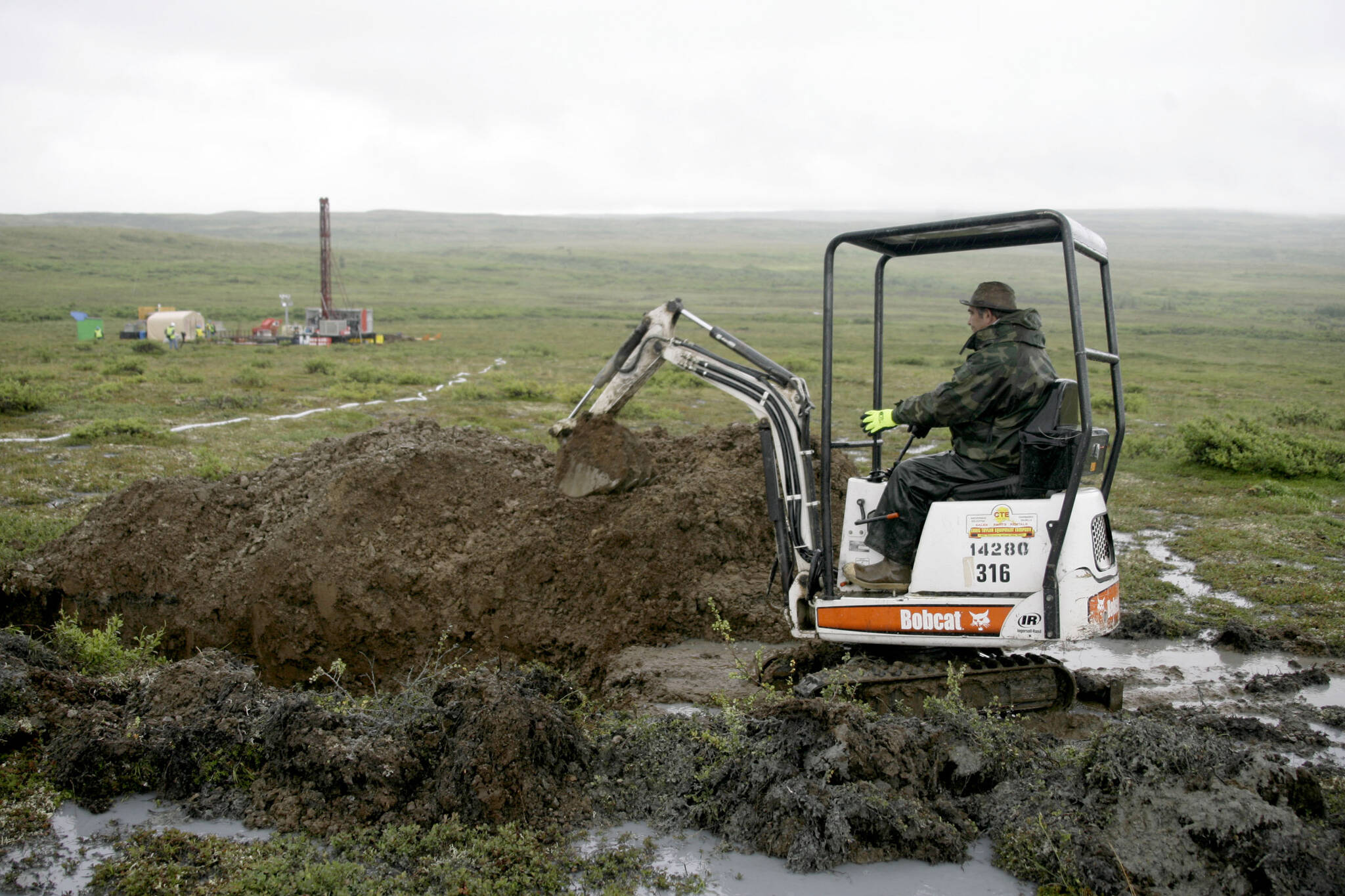By Becky Bohrer
Associated Press
The U.S. Environmental Protection Agency announced Thursday it would seek to restart a process that could restrict mining in Alaska’s Bristol Bay region, which is renowned for its salmon runs.
The announcement is the latest in a long-running dispute over a proposed copper-and-gold mine in the southwest Alaska region.
The U.S. Army Corps of Engineers in November 2020, under the Trump administration, denied key authorization for the proposed Pebble Mine following an environmental review from the agency months earlier that the developer had viewed as a favorable to the project.
In the rejection decision, a corps official concluded the project would “result in significant degradation of the aquatic ecosystem” and that it was “contrary to the public interest.”
The Pebble Limited Partnership, the mine developer owned by Canada-based Northern Dynasty Minerals Ltd., is appealing that determination.
“As the Biden Administration seeks lower carbon emissions for energy production, they should recognize that such change will require significantly more mineral production – notably copper,” Mike Heatwole, a Pebble partnership spokesperson, said in an email. “The Pebble Project remains an important domestic source for the minerals necessary for the administration to reach its green energy goals.”
Restrictions on mining in the region were proposed but never finalized under the Obama administration.
In 2019, during the Trump administration, Matthew Leopold, who was EPA general counsel, directed then-regional administrator Chris Hladick to decide whether to move forward with the proposed restrictions or withdraw them.
Hladick withdrew them and the agency at the time said it was removing what it called an “outdated, preemptive proposed veto of the Pebble Mine” and allowing the project to be vetted through the permitting process.
Earlier this year, a divided appeals court panel, in a case challenging the 2019 action, concluded a regional administrator was allowed to take the actions Hladick did “only if the discharge of materials would be unlikely to have an unacceptable adverse effect.”
The matter was sent back to a lower court to determine if the EPA’s action “was arbitrary, capricious, an abuse of discretion or contrary to law.”
U.S. government attorneys, in a court filing Thursday, said the EPA “acknowledges that it did not address the standard that the Ninth Circuit subsequently determined must be met for withdrawal of a proposed determination.”
The EPA, in a statement, said it is asking the judge to vacate the 2019 action. If granted, it said that would “automatically reinitiate” the review process, through which mine-related activities could be restricted or prohibited.
EPA Administrator Michael S. Regan called the Bristol Bay watershed “an Alaskan treasure that underscores the critical value of clean water in America. Today’s announcement reinforces once again EPA’s commitment to making science-based decisions to protect our natural environment.”
He added: “What’s at stake is preventing pollution that would disproportionately impact Alaska Natives, and protecting a sustainable future for the most productive salmon fishery in North America.”
The EPA has said Bristol Bay supports the world’s largest sockeye salmon runs and that the watershed contains significant mineral resources.
Nelli Williams, Alaska director for Trout Unlimited, one of the groups that sued over the 2019 action, said proposed restrictions would provide “an important layer of protection that makes it much more difficult for the Pebble Partnership, or any other companies in the future, to mine the Pebble ore deposit.”
Northern Dynasty President and CEO Ron Thiessen, in a statement Thursday, said the Pebble project “can be designed, built and operated with industry-leading environmental safeguards while generating significant financial returns over multiple decades.”
The company touted a preliminary economic review it said also looked at potential expansion possibilities and alternative ways to recover gold.
But the statement said neither Northern Dynasty nor the Pebble partnership “has proposed or intends to propose any of these development alternatives in the near-term for regulatory approval.”

